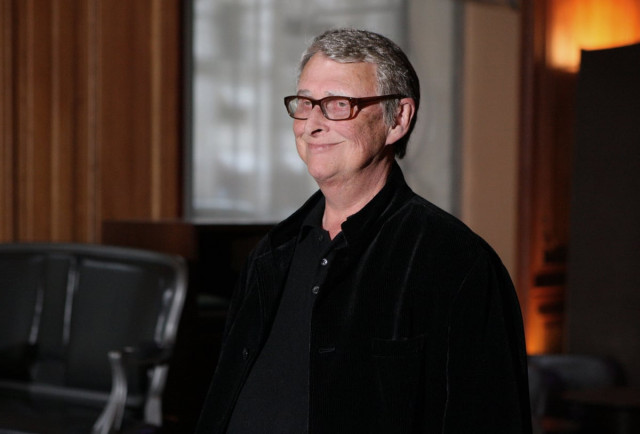Academy Award-winning American director Mike Nichols dies at 83
Nichols made an impact on American cinema with influential movies, such as "The Graduate"

Nichols made an impact on American cinema with three influential movies in a five-year period, including "Who's Afraid of Virginia Woolf," "The Graduate" and "Carnal Knowledge."
Nichols was married to Diane Sawyer, former anchorwoman of ABC's "World News Tonight" broadcast.
He also was one of the few people to win an Oscar, Tony, Emmy and Grammy awards in a career that first blossomed with a comedy partnership with Elaine May in the late 1950s.
ABC News President James Goldston, in a memo to news staff, said on Thursday that Nichols "passed away suddenly on Wednesday evening."
"In a triumphant career that spanned over six decades, Mike created some of the most iconic works of American film, television and theater," Goldston said. "He was a true visionary."
Nichols was born Michael Igor Peschkowsky in Berlin, where his parents had settled after leaving Russia.
He came to the United States at age 7 when his family fled the Nazis in 1939. He grew up in New York feeling like an outsider because of his limited English and odd appearance - a reaction to a whooping-cough vaccine had caused permanent hair loss.
As a University of Chicago student, he fought depression but found like-minded friends such as May.
In the late 1950s, Nichols and May formed a stand-up team at the forefront of a comedy movement that included Lenny Bruce, Jonathan Winters and Woody Allen in satirizing contemporary American life.
They won a Grammy in 1961 for best comedy album before splitting, partly because May liked to improvise and Nichols preferred set routines.
Nichol's first directorial effort was the 1966 adaption of the Edward Albee play "Who's Afraid of Virginia Woolf," starring Elizabeth Taylor and Richard Burton,
It was nominated for an Oscar in all 13 categories in which it was eligible and won five of them, although Nichols did not take the best director award.
He followed that up a year later with "The Graduate," starring a little-known Dustin Hoffman as an aimless college graduate seduced by an older woman before falling in love with her daughter.
Nichols was rewarded with an Academy Award for his direction and the movie, thanks to several memorable lines and the music of Simon and Garfunkel, became a '60s cultural touchstone.
In 1971, Nichols put out "Carnal Knowledge," which created a sensation because of its sexual nature. The manager of a theater in Georgia was arrested for showing the film and had to appeal his case to the U.S. Supreme Court before being exonerated.
In a Los Angeles Times interview Nichols described directing as "a long, long skid on an icy road. ... If you're still here when you come out of the spin, it's a relief.
Sometimes Nichols' movies did go off the road. "Catch-22," "Day of the Dolphin" and "The Fortune" were generally considered unsuccessful and he did not make a feature film from 1975 until rebounding with 1983's "Silkwood," for which he was nominated for another Oscar.
In the second act of his movie career he also directed "Heartburn," Simon's "Biloxi Blues," "Postcards from the Edge," "Regarding Henry," "The Birdcage," "Primary Colors," "Charlie Wilson's War" and "Working Girl," which earned him another Oscar nomination.
He won an Emmy in 2003 for "Angels in America," a TV miniseries about the AIDS epidemic.
In the mid-1980s, Nichols suffered a psychotic breakdown, which he said was related to a prescription sedative, that made him so delusional he thought he had lost all his money.
Despite his urbane, intellectual manner, Nichols once had a reputation as an on-the-set screamer.
Meryl Streep told the Hollywood Reporter, "He was always the smartest and most brilliant person in the room - and he could be the meanest, too."
The actress said that changed after Nichols married Sawyer, his fourth wife, whom he met in a Paris airport while awaiting a Concorde flight.
Nichols had three children from his earlier marriages.



















COMMENTS
Comments are moderated and generally will be posted if they are on-topic and not abusive.
For more information, please see our Comments FAQ